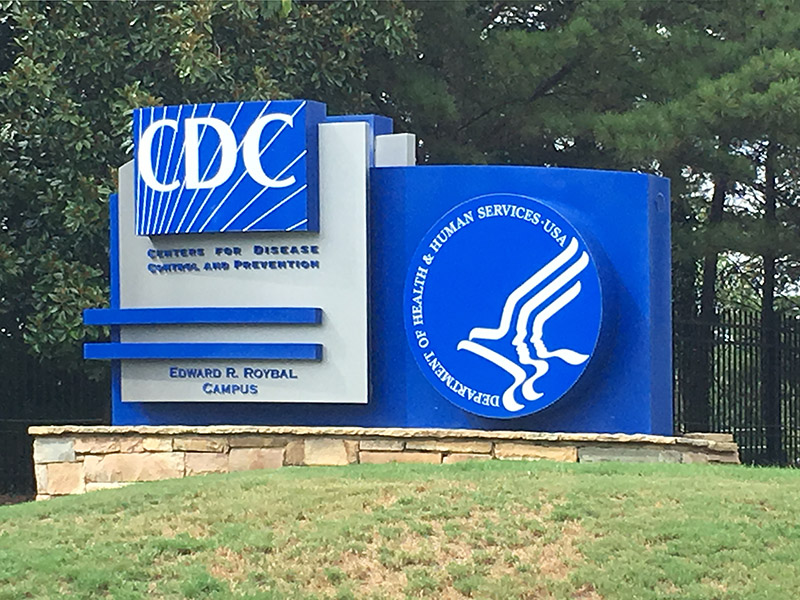Trump administration rolls back LGBTQ protections in Affordable Care Act
Proposal redefines "sex discrimination" in health care to allow providers and insurers to deny LGBTQ patients
![]() The Trump administration has introduced a proposed regulation that would roll back provisions in the Affordable Career Act that prohibit sex-based discrimination, which heretofore has been interpreted as prohibiting discrimination against LGBTQ people seeking access to health care.
The Trump administration has introduced a proposed regulation that would roll back provisions in the Affordable Career Act that prohibit sex-based discrimination, which heretofore has been interpreted as prohibiting discrimination against LGBTQ people seeking access to health care.
The regulation, put forth by the U.S. Department of Health and Human Services, would amend Section 1557 of the Affordable Care Act to explicitly state that sex discrimination does not include instances where LGBTQ people experience discrimination. In its proposal, HHS argues that the change is necessary to bring Section 1557 into compliance with existing federal nondiscrimination laws, and to save money that would otherwise be spent providing health care to LGBTQ people, particularly transition-related care for transgender people.
The proposed regulation would comport with President Trump’s recent unveiling of another HHS rule that would allow health care workers to refuse to provide or participate in the provision of services to which they have religious or moral objections, such as transition-related or reproductive care. The change would also allow insurers to potentially deny coverage to LGBTQ patients or policy holders based on personal objections.
The proposed rule will now go through a 60-day public comment period, as the original Obama-era rule did in 2013 and 2015. HHS may then choose to make alterations to the rule based on the comments, before the rule is fully implemented. If the proposal remains largely unamended, it is likely to be challenged in court.
LGBTQ advocates were understandably outraged over the proposed regulation, but noted that such a policy change was expected given the Trump administration’s refusal to recognize anti-LGBTQ discrimination as a form of sex discrimination. Additionally, Roger Severino, the Trump appointee serving as director of HHS’s Office for Civil Rights, has vocally opposed the Obama-era interpretation of Section 1557 since its inception, leading many to believe it was only a matter of time before such a change was proposed.
“Predicated on little more than prejudice, this proposal will abandon 2 million Americans who already face significant barriers to accessing adequate and life-saving health care,” Mara Keisling, the executive director of the National Center for Transgender Equality. “This is not about free health care or special treatment. It’s about the right of every American to be treated with dignity when they walk into an emergency room, meet a new doctor, or find the right insurance plan.”
Dr. Meera Shah, the associate medical director and director of gender-affirming care, of Planned Parenthood Hudson Peconic, and a fellow with the advocacy group Physicians for Reproductive Health, told Metro Weekly in an interview that many transgender and gender-nonconforming people are already hesitant to seek out health care because of the fear of discrimination at the hands of medical providers.
“People of certain gender identities are already at the margins of health care access, and this could further push them away from accessing health care,” she said. “This [regulation] could mean that a health care provider or physician or nurse practitioner could deny someone who is transgender or gender-nonconforming because they don’t believe or honor their gender identity. Hospitals or EMS could deny care. Insurance companies could deny life-saving treatments, such as hormone therapy. This could have really devastating effects for this vulnerable population.”
Shah also objected to the characterization by HHS of transgender-affirming care as significantly more expensive, noting that the exemptions for medical providers would not just pertain to transition-related care.
“Health care puts us all on a level playing field. It shouldn’t matter how you identify,” she said. “Transgender people have the same healthcare needs you and I have. They need a flu shot, they need cervical cancer screenings, colon cancer screenings, they need their blood pressure checked, they need HIV/STI testing, contraceptive management, and abortion. They deserve the right to access health care services the same way you and I do. … We need to be protecting healthcare and not breaking down access.”

The Williams Institute, an LGBTQ think tank at the University of California-Los Angeles, estimates that 1.4 million transgender adults and 150,000 transgender teens ages 13 to 17 could be negatively impacted by possible refusals of care if the regulation is adopted as currently written. The effects would be particularly acute for the estimated 780,000 transgender people who live in the 28 states that lack laws prohibiting discrimination in public accommodations, such as health care facilities.
“Explicit gender identity protections were adopted in response to an overwhelming record of anti-transgender discrimination and barriers to health care and health coverage,” Jocelyn Samuels, the executive director of the Williams Institute, and the former director of OCR who drafted the original regulations implementing Section 1557, said in a statement. “A reversal of these protections would be contrary to numerous court decisions and any fair reading of the statute and would seriously endanger the health and wellbeing of an especially vulnerable population.”
This is particularly true for transgender people living in the American South, where most nondiscrimination laws deliberately exclude LGBTQ people.
“At least half a million transgender people call the South home, and every year, far too many struggle to find health care professionals that will competently treat them with dignity and respect. But the brazen disregard for trans people’s health in the Administration’s new rule change underlines this disparity in bold black paint and gives discrimination a blanket thumbs-up,” said Ivy Gibson-Hill, the community health program director at the Campaign for Southern Equality.
“This policy is not just a step in the wrong direction,” Gibson-Hill added, “it’s a hard shove off the map, the latest attempt by this Administration to deny humanity to transgender people.”
Lambda Legal all but promised to sue the Trump administration over the proposed regulation, saying: “This latest assault on our rights will not go unchallenged.”
“Yet again, the Trump administration strives to harm LGBT people; this time by rolling back crucial health care protections for LGBT people and other vulnerable persons,” Lambda Legal Litigation Director Diana Flynn said in a statement. “By repealing a regulation clarifying that LGBT people are protected against health care discrimination under the Affordable Care Act’s nondiscrimination provisions, the Trump Administration seeks to deny life-saving health care to LGBT people and others and replaces these critical protections with a narrow definition of sex, not grounded in science or the law.
“The move comes during the same week that HHS finalized its Denial of Care Rule inviting heath care discrimination against LGBT people and others, and the news that the Department of Housing and Urban Development is proposing a new rule that will allow federally-funded homeless shelters to turn away transgender people,” Flynn added. “This week’s nefarious trifecta is just the latest in the Trump administration’s unrelenting campaign to promote anti-LGBT discrimination.”
Support Metro Weekly’s Journalism
These are challenging times for news organizations. And yet it’s crucial we stay active and provide vital resources and information to both our local readers and the world. So won’t you please take a moment and consider supporting Metro Weekly with a membership? For as little as $5 a month, you can help ensure Metro Weekly magazine and MetroWeekly.com remain free, viable resources as we provide the best, most diverse, culturally-resonant LGBTQ coverage in both the D.C. region and around the world. Memberships come with exclusive perks and discounts, your own personal digital delivery of each week’s magazine (and an archive), access to our Member's Lounge when it launches this fall, and exclusive members-only items like Metro Weekly Membership Mugs and Tote Bags! Check out all our membership levels here and please join us today!


























You must be logged in to post a comment.